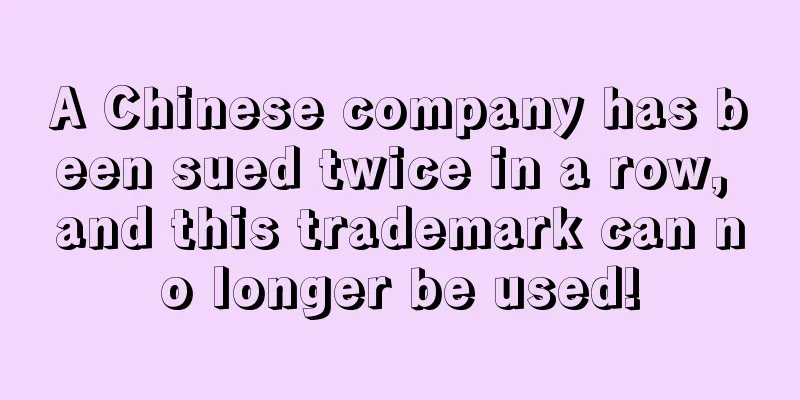A Chinese company has been sued twice in a row, and this trademark can no longer be used!

|
On January 30 and January 31, a Chinese jewelry company filed two cases in the Northern District Court of Illinois, with case numbers 21-cv-551 and 21-cv-554 respectively.
As early as 2018, the company initiated a rights protection case 18-cv-4651. At that time, some Amazon sellers’ stores were closed and their funds were frozen, and some Wish sellers reported that their accounts were frozen . The editor learned that the 2018 case and the two cases this year were all represented by Ford Banister IP . Compared with law firms well-known to cross-border sellers such as GBC and EPS, Ford Banister is somewhat unfamiliar. However, in January last year, the law firm represented the SU.CHENY brand, whose trademark and copyright owners are Chinese . Let's look at the plaintiff company. I learned from Qichacha that the company was founded in 2013 and is headquartered in Weifang. It is an export-oriented cross-border e-commerce B2C company that sells jewelry . After inquiry, it was found that the company has two registered trademarks↓
The trademark protected in this case is "Uloveido" as shown in the above picture . The specific trademark information is as follows ↓
From the above picture, we can see that the company registered Uloveido as a trademark as early as 2016, registered in the 014 jewelry and watch category, and its products include rings, bracelets, watches, necklaces, etc. Although nearly a week has passed since the incident, there are still sellers selling infringing products . There are 84 related search results for "Uloveido" on eBay alone . In the picture below, a product on eBay uses Uloveido in its title. If it does not obtain authorization from the brand, it may face the risk of being sued for infringement.
Another trademark information registered by the company is as follows ↓
There are more than 20 search results for "Almei" on eBay. Although the previous case did not involve this trademark, the possibility of rights protection in the future cannot be ruled out. Sellers should be cautious. Although Chinese companies do not defend their rights as frequently as overseas brands, it has happened from time to time in recent years, which also reflects the increasing awareness of intellectual property rights among Chinese sellers. For example, the number of trademarks applied for by Chinese companies in the United States has increased 15 times from 4,706 in 2013 to 76,566 in 2019 ! In general, whether the party defending rights is a domestic brand or an overseas brand, infringement is an indisputable fact. It is imperative for sellers to remove products from the shelves and withdraw cash as soon as possible. In the future, they must be more cautious when selecting products and writing listings. Infringement Chinese Brands trademark |
<<: Pinterest's fourth-quarter results far exceeded expectations with $706 million in revenue
Recommend
What is Payoneer (P Card)
Payoneer (P card) is an institution authorized by...
Big news! Snapchat launches TikTok competitor Spotlight globally
When it was first launched, Spotlight has covered...
Amazon orders dropped sharply before Black Friday! Sellers: Peak season never came
Before Black Friday, Amazon sellers seem to be ex...
What is Letaobang? Letaobang Review, Features
Letaobang (Jiangmen Letao Technology Service Co., ...
What is Viralix? Viralix Review, Features
Viralix offers a range of services for Amazon sell...
A group of sellers were blocked before the peak season
Recently, the topic of "market performance d...
What is Altra? Altra Review, Features
As one of the world's running shoe brands, Alt...
Ali International Station January Cross-Border Index: New Energy Continues to Lead, Energy-Saving Home Improvement Becomes Popular
At the beginning of 2023 , what new trends will t...
Southeast Asia's cosmetics market revenue reaches 100 billion yuan! The cosmetics market has broad prospects
Southeast Asia's consumption capacity has inc...
Tmall and Taobao launched the "Cross-border Worry-free Hosting" service to increase support for domestic merchants to go overseas
Starting from Double 11 this year, Tmall and Taob...
What is Seller's Suite? Seller's Suite Review, Features
Seller's Suite Amazon seller training, from a...
76% of Spaniards prefer online shopping, with Amazon being the most popular platform
According to a recent study of Spanish consumers,...
DSK online sales up 120%! Demand for home fragrances on the rise in Australia
Australian home fragrance retailer Dusk Group ( D...
Three clothing infringement cases were exposed, these "same styles" cannot be sold!
The most popular category for global cross-border...
What is Payeezy? Payeezy Review, Features
Payeezy is one of the most powerful payment servi...









